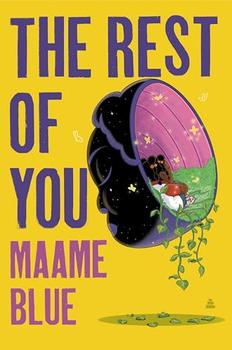Summary | Excerpt | Reviews | Beyond the Book | Readalikes | Genres & Themes | Author Bio

A Novel
by Emma Torzs
"If you'd told me two weeks ago I'd block the sun as soon as it came up, I would have laughed you off the station," Esther said.
Pearl ripped the tape with her teeth. "Well, two weeks ago you were sleeping through the night. Never say the dark did nothing for you." She applied the last strip and added, "Or me."
"Thank you, darkness, and thank you, Pearl," Esther said. Though she had indeed been sleeping badly since the sun had reappeared after six months of winter, it was still somewhat dispiriting to watch the light and the distant mountains vanish, plunging her back into the realities of her cell-like room: the bed with its rumpled purple sheets lit by the baleful overhead bulb, the scuffed tile floors, and the plywood desk piled high with scattered papers, most of them notes on the Mexican novel Esther was translating for fun. The novel itself was on top of her dresser, safely out of range of the collection of half-full water glasses leaving rings on the notebook paper.
Pearl sat opposite Esther at the foot of the bed and said, "So. Are you ready to face the unwashed masses?"
In response, Esther threw an arm over her eyes and groaned.
Esther and Pearl had spent the past winter as two of just thirty others holding down the small South Pole station, but November had ushered in the summer season and over the past few days, small roaring cargo planes had disgorged nearly a hundred new people into the station's hallways. Now scientists and astronomers filled the dorms, the galley, the gym, the upper workrooms; strangers who ate all the late-night cookies and booted up long-sleeping computers and asked constant, anxious questions about what time of day the internet satellite went up.
Esther had imagined she'd be happy to see all these new faces. She had always been a natural extrovert, not the typical candidate to be locked away on the ice in a research station that much resembled her tiny rural high school. She'd lived in Minneapolis for the year before she'd come here to the Antarctic, and her friends there had reacted with honest horror when she'd told them she'd accepted a job at the Pole station as an electrician for the winter season. Everybody knew someone who knew someone who'd tried it, loathed it, and flown home early to escape the crushing isolation. But Esther hadn't been worried.
She'd figured Antarctica couldn't be that much worse than the isolated, extreme conditions in which she had grown up. It'd be good money, it'd be an adventure—and most importantly, it would be completely inaccessible to most every other person on the planet.
Sometime over the long winter, however, Esther's extroversion had started to atrophy and with it the mask of good cheer she usually donned each morning along with her uniform. Now she gazed up at the ceiling, industrial white like the industrial white walls and industrial white hallways and her industrial white coworkers.
"Have I actually been an introvert this whole time?" she said. "All these years, have I been fooling myself? The real extroverts are out there like hell yeah, fresh meat, nonstop party, bangtown USA."
"Bangtown Antarctic Treaty International Territory," Pearl corrected. Pearl was Australian with dual citizenship.
"Right," said Esther. "That."
Pearl got to her knees and crawled down the length of the bed toward Esther. "I imagine," she said, "that six months of unwanted celibacy plus a planeful of new faces could make an extrovert of anyone."
"Mmm," Esther said. "So you're saying I've become an introvert through the sheer power of ..."
"My amazing body, yes, obviously," said Pearl, whose lips were now trailing along the sensitive shell of Esther's ear.
Esther reached up and helped herself to a handful of Pearl's blond hair, which somehow always looked sunkissed despite the utter lack of sun. Australians. So indefatigably beachy and up-for-it. She wove her fingers through those tangled strands and tugged Pearl down to kiss her, feeling her smile against her mouth as Esther pulled her closer.
Excerpted from Ink Blood Sister Scribe by Emma Torzs. Copyright © 2023 by Emma Torzs. Excerpted by permission of William Morrow. All rights reserved. No part of this excerpt may be reproduced or reprinted without permission in writing from the publisher.




Idealism increases in direct proportion to one's distance from the problem.
Click Here to find out who said this, as well as discovering other famous literary quotes!
Your guide toexceptional books
BookBrowse seeks out and recommends the best in contemporary fiction and nonfiction—books that not only engage and entertain but also deepen our understanding of ourselves and the world around us.